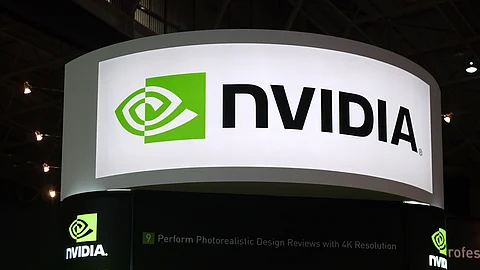

Nvidia and Advanced Micro Devices (AMD) have agreed to pay the U.S. government 15% of their revenue from artificial intelligence (AI) chip sales in China to obtain export licenses, according to multiple reports.
This unprecedented arrangement allows the chipmakers to resume sales of their H20 and MI308 chips, respectively, following restrictions imposed by the Trump administration in April.
The deal, confirmed by a White House official, has sparked debate over its implications for U.S. trade policy and national security.
The agreement requires Nvidia to share 15% of its H20 chip revenues and AMD to share the same percentage of its MI308 chip revenues with the U.S. government.
These chips, tailored for the Chinese market to comply with prior export controls, were restricted earlier this year due to concerns they could enhance China’s military AI capabilities.
The U.S. Commerce Department began issuing export licenses for Nvidia’s H20 chips last Friday, following a meeting between Nvidia CEO Jensen Huang and President Donald Trump.
AMD’s licenses for its MI308 chips have also been granted, enabling both companies to resume sales in China.
President Trump described the H20 chip as “old” and “obsolete,” stating:
He’s selling essentially an old chip. I said, if I’m going to do that, I want you to pay us as a country something, because I’m giving you a release. I released them only from the H20.
Nvidia neither confirmed nor denied the deal but emphasized compliance with U.S. regulations, with a company spokesperson saying:
While we haven’t shipped H20 to China for months, we hope export control rules will let America compete in China and worldwide.
AMD did not respond to requests for comment
The deal could generate over $2 billion for the U.S. government, with Nvidia projected to sell $15 billion and AMD $800 million in chips to China by year-end, according to Bernstein Research analysts.
Trade experts have raised alarms about linking export controls to monetary payments.
Christopher Padilla, former head of the U.S. Commerce Department’s International Trade Administration, called the deal “astonishing,” warning:
If the Trump administration is allowing companies to buy their way past export controls imposed to protect US national security, we are in very dangerous waters.
Peter Harrell, a nonresident fellow at the Carnegie Endowment for International Peace, added, “The Chinese would pay a lot for F35s and advanced US military technology, too,” highlighting the risky precedent.
The Trump administration has not yet determined how the collected revenues will be used, leaving questions about the deal’s broader impact on U.S.-China trade relations.